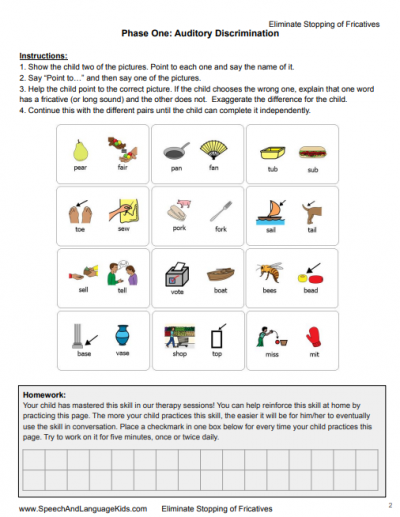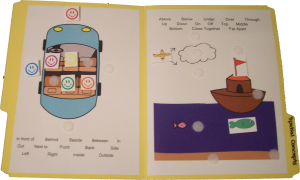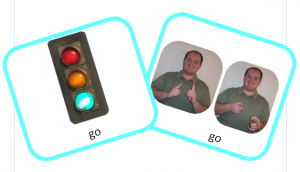Hang in there, we’re going to talk about screen time…
Oh man do I hate this subject! Not so much as a speech-language pathologist but as a mom. Actually…as a mom of children during a pandemic. This is NOT an easy subject to write about but I know it’s important so here we go. Hang with me as we discuss screen time and speech delays and what you can do to help.
I actually wrote this post many years ago (pre-pandemic) and I had a much tougher “SCREEN TIME IS EVIL GET RID OF IT ALL” sort of recommendation. Today I’m updating it and I’m coming at you with much more love and support for you as a parent because I know…it’s hard. The pandemic made it even harder than it already was. And screens are pervasive in our lives. They are everywhere! Also, more and different research is coming out about screen time so it’s time to update. So maybe we need to look at the gray areas a bit more.
What is Screen Time?
First, let’s define the term. Screen time refers to any time that your child spends with a screen in front of his face (one that’s turned on, anyway). That includes a television, movie theater screen, smart phone, tablet, computer, hand-held video game device, DVD player in the car, or anything else with a screen and moving pictures. It’s all screen time. However, different types of screen time do seem to have slightly different effects. More on that later.
Screen Time and Birth-2 Years:
Young children learn to talk and communicate through interactions with other people. That’s the way it has always been and that’s the way it will continue to be, despite any new technology that comes our way. The first several years of life are crucial for your child’s language development. It is when their brain is the most receptive to learning new language and is building communication pathways that will be with them for the rest of their lives.
Once that window closes, it is much more difficult for someone to learn and develop language skills. That’s why it’s harder for you to learn a foreign language as an adult and those rare children who were raised by wolves in the woods have a hard time learning to communicate efficiently.
Time spent in front of a screen basically takes away an opportunity to interact with those around him and learn by observing his environment. No, watching a screen for a few minutes won’t completely break your child’s language development, but we want them to spend as much time as possible interacting directly with those around them and learning from their environment.
Think about a car ride. If your child has a device in front of him, he quietly sits and watches his favorite show. You probably don’t interrupt often to talk to him. On the flip side, if he didn’t have a device, you would most likely be talking to him more, even if he’s not responding. And if he’s bored, he might start saying something to you as well. Let’s face it, we like to fill silence so if there’s no screen making noise, we’re more likely to talk. (This goes for the radio as well, turn off the noise and talk to your child in the car!)
So what about those awesome videos that are supposed to teach your child vocabulary, or sign language, or to read?
Well, they are still just videos. Yes, vocabulary and reading are important parts of communication, but they are a very small part of a much bigger picture. Communication is about interacting with others, the give and take.
The speaker responds to the listener’s body language and responses to change and adapt what they are saying. The listener uses non-verbal cues to gain deeper meaning from the speaker’s message. There is so much more going on than the list of vocabulary words that the lady in the video is teaching. Videos do not replace person-to-person interactions for teaching language or communication. In fact, this study showed that children younger than three-years-old were unable to relate what happens on a screen with real life. They don’t know it’s real!
On the plus side though, this study showed that if parents engaged in a vocabulary-learning video with the child and demonstrated the words for them, the children were able to learn more from the video than if they were watching alone. So if you’re really desperate for a video break for your little one, just sit with them and help your child follow along!
Can Screen Time Cause Language Delays in Young Children?
Researchers are beginning to publish more and more studies about the detrimental effects of screen time on language development.
This study by Chonchaiya and Pruksananonda found that children who began watching tv before 12 months and who watched more than 2 hours of TV per day were six times more likely to have language delays! Yikes!!
This study by Duch et. al. also found that children who watched more than 2 hours of TV per day had increased odds of low communication scores.
This is why the American Association of Pediatricians recommend no screen time at all until children are 18-24 months old.
Did Screen Time Cause My Child’s Language Delay??
There is no way to tell if too much screen time caused your child’s speech delay or language problems. Most likely, it was a combination of factors, so there’s no use blaming yourself or feeling guilty. However, continued overuse of screen time could be making your child’s language delay worse or keeping it from getting better.
Some children do completely fine with tons of screen time. Some children learn to count, name things, or even read from screens! However, your child is having trouble with communication so he needs every opportunity possible to hear words spoken to him (by a real person, not a screen) and to practice using sounds and words himself.
I’m not saying that screen time caused your child’s language delay. I’m saying that it could be making it worse.
______________________________________________________________________________________________________________________________________
Screen Time and Older Children:
The older children become, the more screen time they can handle. Plus, as they age they will begin to be able to actually learn things from screens as well! For example, in this study, children who watching the Super Why show performed better on literacy tasks after watching. And in this study, children who watched Daniel Tiger had improved social skills, especially when their parents talked with them afterward about the lessons.
Can My Older Child with a Language Delay Watch Screens?
Here’s where we get into a bit of a gray area! Since there’s no way to know if screen time impacted your child’s language development, we don’t have a clear answer here. You could always try cutting out screen time and see if your child’s communication improves. But that’s not always feasible for families.
This study determined that passive screen time (like watching videos) was more detrimental than playing an interactive game or using it for educational purposes. You could always try switching to less passive forms of screen time.
You can also just try reducing screen time bit by bit and watching for improvements. You can try limiting the maximum number of minutes the child is in front of a screen per day. Or, you could limit the times that he is allowed to use a screen (for example, only between 4:00 and 6:00). You could also set parameters on what types of screens or uses your child is allowed to watch, such as what shows or what devices.
Start off by only limiting your child’s screen time slightly. Then, gradually increase the limits until you have reached the desired amount of screen time. Also, make sure you replace the times that your child normally would have been using a screen with one of the alternatives below.
______________________________________________________________________________________________________________________________________
Alternatives to Screen Time:
Replacing Screen Time with Interaction Time
Try some of these alternatives to screen time that are way better for your child’s development and will help you build a better relationship with your child as well. Keep in mind it’s important for you to put away your screens when you interact with your child as well. Put away your smart phone!
- Talk with your child. If your child is only giving you one-word responses, try asking more specific questions (like “who did you eat lunch with”) instead of open-ended questions (like “how was your day?”).
- Sing songs
- Read a book
- Play with your child’s favorite toy
- Color a picture
- Make a craft project
- Play in the yard
- Go for a walk
- Take your child to a park
- Go for a car ride and talk about what you see
- Go to the library and look for books on a topic that interests your child
- Play a board game
- Teach your child a new skill
- Teach or practice a sport in the back yard
- Ride bikes
- Go somewhere with an indoor play-place
- Call up some friends and have a play date
- Cook something in the kitchen together
- Plant seeds or plants in a garden
- Do a family service project together, like helping an elderly neighbor with house work
Waiting Cards: Language-Boosting Alternatives for Screen Time: So many times we hand over technology when a child needs to wait. Learn how to teach kids to wait using waiting cards.
**Keep in mind, the key here is that you are replacing the screen time with quality time with you or another caring adult. That will help ease the transition!
How to Keep Your Child Busy Without Screens (When You Need to Get Something Done):
Ok, I know you can’t always sit down and have a tea party with your child. We have to get things done and there just aren’t enough hours in the day to always be sitting down with your child. Often we use the screens to keep the child busy or entertained so we can get food in everyone’s bodies and take care of our basic bodily needs…like going to the bathroom. Or we need to put out the literal fire that the 4-year-old started.
Here are some tips that will help keep your little one independently engaged without screens:
- Rotate Toys: If you put a toy away for a bit and then get it out again, your child probably will have completely forgotten about it and will suddenly find it fascinating again! Have a spot in your house where you dump a tub of a few toys (we had a train table in our living room for this). Every few days (or whenever your child loses interest), shove all of those toys into the tub and dump out a new one. This should buy you at least a few minutes, right??
- Give them a (Fake) Side Job: When your children are young, they don’t always know that they’re not really helping. Sure, it’s great to teach children how to actually help you with chores and meal prep, but there’s a time and a place for that. And it’s not when you’re trying to get a meal on the table before that terrible witching hour when the baby is gonna scream till you put her down. So if you’re needing a moment, try giving them a job that looks like it’s helping but will actually just keep them busy. Give them a step stool and let them “wash dishes” in a sink with some soapy water in it. Give them a few plastic dishes and let them play in the bubbles. Or, give them a piece of paper and let them write or draw on it. Find a way that you can give them some piece of what you’re doing so they feel like they’re participating.
- Send them on a Scavenger Hunt: Ask your child to go upstairs and find something blue. Or bumpy. Or little. Once they bring you something, tell them to take it back to where it goes and then find you something different.
- Place Strategic Toys Near You: Put some colorful magnets on the fridge and redirect your child to them when you’re trying to prepare food. Or lay some puzzles out near your desk when you’re trying to get that report typed up. I have an actual swing that hangs in the doorway of my office so when my kids are following me into the office, they can swing while I get my work done.
- Bathtub Full of Balls: If you haven’t discovered the magic of the bathtub yet, you’re missing out! If the thing you need to do happens to be “clean the bathroom”, you’re in luck! Give them a water bath and let them play. If you need to leave that room though, try putting something else in the bathtub with them like several balls or some sort of mess/sensory play that can go down the drain, like bubbles or pouring water from one jar to another.
I’m sure your child will resist the lack of screen time at first, but keep in mind that you are doing her a huge favor by limiting her exposure and creating wonderful new experiences that will open her mind, improve language development, and maybe even expose her to some new hobbies or interests that she never would have found otherwise. I know this is a hard thing to do, but it is so worth it in the end. You can do it!
Resources to Help Children with Language Delays:

About the Author: Carrie Clark, MA CCC-SLP
Hi, I’m Carrie! I’m a speech-language pathologist from Columbia, Missouri, USA. I’ve worked with children and teenagers of all ages in schools, preschools, and even my own private practice. I love digging through the research on speech and language topics and breaking it down into step-by-step plans for my followers.
Fun Fact: When my son was three, he once got mad at me and told me he was going to send me to Antarctica in nothing but a t-shirt. He had an overly large vocabulary for a 3-year-old….along with an overly large amount of sass. He still has both to this day.
Connect with Me:












My daughter is 2 and 5 months old and watches between 1 – 2 hours a day, though not all at once. She only watches educational stuff and I try to watch each show with her at least once and talk about it with her. We also do art based on the topics in shows. I’d planned when she was a baby to allow her no screen time at all, which is unreasonable, of course. We even gave away our tv. We made it until she was nearly two, when we decided to allow her to watch some PBS shows on the iPad so we could get her to sit down in her car seat. Since the app needed internet to work, it shut off after we left our house, but I still felt bad about it. When she turned two it only got worse and seems to continue to do so. We moved and shortly thereafter, I had another baby and sometimes, tv is the only thing that keeps us clinging to sanity. Her verbal skills seem to be super advanced, she loves books, and she seems to have a great imagination (she’s pretended to be a dog for the entire last month, which includes barking “hello” at other kids, licking herself, and pretending to pee on fire hydrants), so I’m probably being paranoid. It all makes me wonder how parents managed at all before tv.
I agree, having the screens on can be a blessing at times! I think it’s great that you are spending so much time doing other activities with your child and helping her to process the information she received from the TV, instead of just letting her zone out. As long as your daughter continues to develop normally and you’re keeping it below the recommended 2-hour-per-day limit, then I’d say you’re doing just fine!
Excellent article. Will print and keep.
That is great! I am glad that we can help!
Its a very beneficial article. Very impressed. Keep it up!
Thank you!
thank you
You’re welcome!!
Good morning,
Thanks for the article and links to the research. Very useful. Could I ask please for the references that support the claim of “increased screen time is also linked to attention problems, short term memory problems and reading problems.
Thanks in advance,
Here are some of the studies I’ve seen. It’s a complex subject though so there’s no hard proof out there, just suggestions and links:
http://uknowledge.uky.edu/psychology_facpub/58/
http://jamanetwork.com/journals/jamapediatrics/fullarticle/570369
http://www.ncbi.nlm.nih.gov/pmc/articles/PMC1635698/
https://www.eehealth.org/blog/2016/02/too-much-screen-time-and-kids-mental-health
http://www.aacap.org/AACAP/Families_and_Youth/Facts_for_Families/FFF-Guide/Children-And-Watching-TV-054.aspx
http://pediatrics.aappublications.org/content/early/2010/10/11/peds.2010-1154.abstract?sso=1&sso_redirect_count=1&nfstatus=401&nftoken=00000000-0000-0000-0000-000000000000&nfstatusdescription=ERROR%3a+No+local+token
I think my daughter suffer language delay and lost concentration due too much screen time. She barely speak a word and seem couldnt sit down to listen when we try to teach. She is 2 and 1 month old and had bring her diagnose for autism and hearing problem but they rule out any possibility at the moment. What should i do to at least brought her interest to speak. She seem understand we try ask her speak sth as she will cover our mouth and become grumpy. Lost
Here’s what I recommend if you’re looking for something you can do while you wait to get your child into therapy: https://www.speechandlanguagekids.com/jump-start-your-late-talker/
Do you have any recommendations that don’t require giving you money?
Hi, Kristy-
Here is a link to a page full of free resources. Hope this helps!
Hi how is your daughter now?? My son have the exact same problem. Please answer me . Haidygeorges@ymail.com
Please help i have the same prblm dr by profession so my 5 yr use a lot of mob phones now she is not able to communicate and also not still potty trained she loves mob n screen
Hi careBaby, Our daughter is now 2 year and 1 month, we have the same issue now. She sings all the songs from the television all day (A to Z, 1 to 10 etc.) but does not even understand what we talk – even simple commands. Sometimes she responds to our commands when she is equally interested in the activity.
How is your kid doing now? Should we be worried? We have already cut down on the TV but we are still worried if something is wrong. Thanks.
Wow, this article is really great and informative. I wish I known this when I was a kid. My parents were young at the time and they were first time parents but I do remember spending a lot of time in front of the tv. I have a speech impediment but I don’t blame my parents not at all but I do notice after spending less time around the screen that my speech sounds slightly better. I’m defiantly going to take this information and apply it towards my life and hopefully I can develop more of my speech and speak more clearly. I’m 33 years old by the way.
Thank you so much for this article it answered ALOT of questions I had in my head. I have a 17 month old, he use to babble and say at least three words by the age of 12 months from 12 months and up he started with his brithers ipad he was on it alot And I didnt think it was a problem. Until i noticed that he has stopped making noises lack of concentration not respondibg to his name and no eye contact. I read alot of things online wich got me worried my son use to be exited and pointing at everything. So when inread your article i cut of all of electronic devices for 30 days I did see improvment better eye contact and now responding to his name and more babbling, but still no words and no pointing when he wants something. Thank you .
I’m not a parent but I’m reading this article because of my concerns for a friend’s 3 yr old toddler who has speech/language delay.
I got concerned when I saw him in crib when he was about 12 months or more. The mom told me he’s pretty much calm in crib and likes to watch tv. I’m sure they let him watch tv most of the day. She also feeds him solid food in the crib.
I had no idea it can cause speech delay but I thought it was unhealthy. I didn’t voice my concern because they might take it the wrong way. Now they are seeing a therapist and that saddened me because it could have been avoided. Despite seeing a therapist I honestly think there’d Be any progress because the toddler is still addicted to watching YouTube videos in mom’s iPhone. I say addicted because that’s all he does. His mom couldn’t even use the phone. He can differentiate iPhone from Android too. So sad
hi,
my son is four years and three months. when he was two he could count to ten and now can speak all the alphabets upper and lowercase, counts number till hundred and knows all the colors. but shows signs of echolalia. he answers by repeating the question first and then gives answer. he watches YouTube videos ALOT and keeps repeating them as scripts. do you think cutting on screen time will help him minimize echolalia and talk normally?
Hi, Sana-
Here is a blog post that Carrie wrote on Echololia and one on screen time that may be helpful to you.
How do we access your materials and watch videos if we remove all of the screens?
Hi, Amanda-I think the point of Carrie’s post was to limit screen time. In this day and age we all know it’s tough to take screen time away completely. Please let us know if you need any further help.
I have a set of twin and they are about 30 months old. Twin one started counting one to three before 15 months but all of a sudden stopped talking and responding when you talk to him. His brother is still slow in speaking. I must admit that we allowed them so much screen time because it was a way out of the struggle to care for both of them. I must commend you for the write up. I wish to know, if there are other things I (we) can do to improve their language development aside eliminating screen time and one on one conversation with the child.
Hello! Thank you so much for reaching out. Unfortunately, we get a ton of questions every day about how to solve specific speech/language problems. Since we have such a small staff, we aren’t able to answer every question that comes through on the website, social media, or via email. If you are a parent, we suggest you reach out to a local speech-language pathologist who can work with your child directly and answer your question.
If you are another speech-language professional, we have created a membership where we pay a full staff to answer questions like this on a regular basis. We would be more than happy to answer your question inside the membership program. We’re able to answer more questions in here because we have a full library of questions that we’ve already answered so our staff can either link you to the answer if it exists, or write you a custom response if needed. We’d love to see you inside the membership!
Click Here to Become a Member: https://www.slpsolution.com/pediatric-signup/.
Will you please post the name and credentials of the person who wrote this article? I would like to cite it in a research paper that I am writing for school.
Hi, Brooklyn-
Carrie actually wrote that post. Below are her credentials:
Carrie Clark, MA CCC-SLP
will you be able to tell me when this article was published
It was published on Carrie’s site on May 22, 2014.
this is very true
i grow up in the provice of philippines with no power,no internet,no phone signal
and every kids there never had speech delay problem not once..so i do believed toomuch screen it cause speech delay
now im a mother of 2 yr old and since born he has allday long youtube and we seeing speech therapy
i wish i have read this long time ago or have remember atleast my childhood moments
i will try the 30 days sero screen and see how it works
i will be back here after 30 days
Thank you so much for the article. Very informative. Will put into practice what the article recommends because we suspect this has affected our 2 yr and 3 months daughter
Thank you for putting this out there. I agree with your opinion and I hope more people would come to agree with this as well.